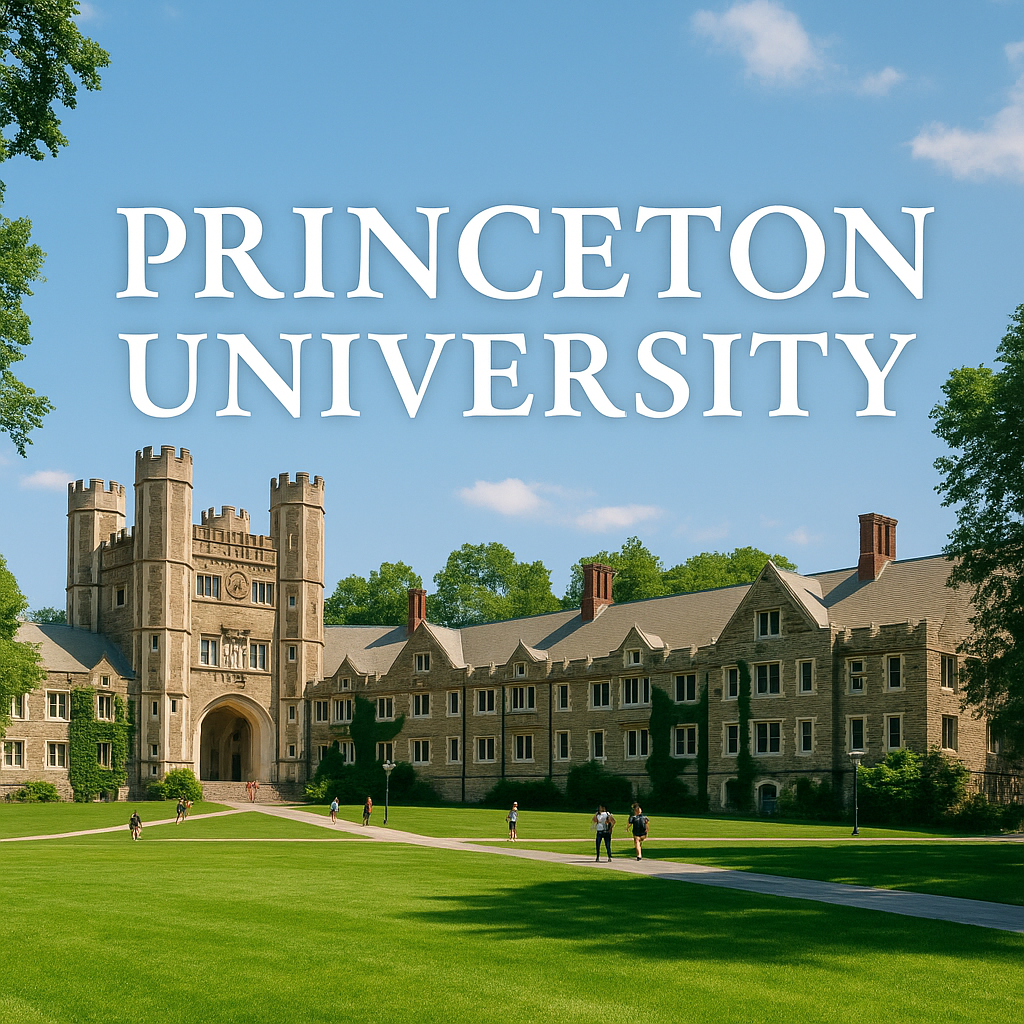Meta title: Princeton University Guide for Students and Parents
Meta description: Explore academics, admissions, scholarships, research opportunities, housing, and campus life at Princeton University. Clear steps to plan your application and succeed.
Princeton University is a small Ivy League institution with a global reputation for academic rigor, undergraduate focus, and a tradition of service. Located in Princeton, New Jersey, the university blends classic collegiate architecture with modern labs, studios, and maker spaces. What sets Princeton apart is the way it pairs world class research with close faculty mentorship. Undergraduate students learn in small seminars, write original research through junior papers and a senior thesis, and build strong relationships that carry into graduate school and careers.
Academic strengths and signature programs
Princeton’s academic strengths span the liberal arts and engineering. Popular fields include computer science, economics, public policy, mathematics, physics, English, history, and molecular biology. The School of Engineering and Applied Science offers programs in computer science, operations research and financial engineering, electrical and computer engineering, and more. Interdisciplinary study is easy to pursue. Students often connect data science with public policy, or combine the arts with technology through certificates and project based courses. A distinctive feature is the senior thesis, a capstone that teaches independent thinking, research design, and long form writing. Employers and graduate programs value this evidence of sustained intellectual work.
Research culture with undergraduate access
Although Princeton is a powerhouse of research, the culture invites undergraduates into labs, archives, and field projects early. You might assist with machine learning experiments, analyze policy data sets, work in a plasma physics lab, or dig into rare manuscripts in Firestone Library. Summer research grants and term time assistantships let students explore ideas while building technical and communication skills. Makerspaces and entrepreneurship hubs support prototypes, creative coding, and startup concepts. The result is a campus where curiosity becomes practice, and practice becomes impact.
The Princeton approach to teaching
Class sizes remain relatively small, with a strong emphasis on seminars and precepts that encourage discussion and debate. Faculty office hours are expected rather than optional. Writing is integrated across disciplines, so students learn to express complex ideas with clarity. Many courses pair theory with real applications such as policy memos, lab reports, design reviews, or public presentations. Academic advising, peer tutoring, and writing centers help you plan a coherent path through general education, majors, and certificates without losing sight of your long term goals.
Admissions strategy and timeline
Admission to Princeton is highly selective, so a clear narrative matters. Start by reviewing course prerequisites for your intended concentration and keep your grades strong across subjects. Use your essays to show authentic interests, sustained effort, and what you hope to learn next. Concrete stories beat generic claims. If you have research, creative work, leadership, or community projects, describe the problem, the process, and the result. Ask recommenders who know your character and your growth. Build a timeline with every deadline, transcript requirement, and test policy, then check it weekly. A tidy application reflects the habits you will bring to campus.
Scholarships, financial aid, and simple budgeting
Princeton is known for generous financial aid that makes the university accessible to students from a wide range of backgrounds. Need based support can reduce the cost of attendance significantly. To stay organized, create a one page budget that lists tuition, housing, meal plan or groceries, books, transit, and healthcare. Track due dates for bills and use reminders to avoid late fees. Apply for external scholarships that align with your field or community service. Financial literacy workshops and advising on campus can help you plan for both expected and surprise expenses.
Residential life and community
Residential colleges shape the first years at Princeton. Each college provides dining halls, advisors, study spaces, and social events that make the transition to university smoother. After the first years, students can remain affiliated while choosing different housing options. Campus traditions include arch sings, student theater, debate, and a rich calendar of cultural groups, service organizations, and club sports. The town of Princeton offers bookstores, cafes, parks, and train connections to New York and Philadelphia. The rhythm of campus life balances intense study with opportunities to lead, perform, and relax.
Career development and alumni network
The Center for Career Development helps students translate academic work into professional stories. Services include resume reviews, mock interviews, career fairs, alumni panels, and internship funding for public interest or research roles. Princeton’s alumni network is global and active, which means mentorship can turn exploratory conversations into concrete opportunities. Many students combine internships with independent research, which yields a portfolio that demonstrates both skill and initiative.
International students: visas, work options, and support
International students receive advising on visas, health insurance, and employment rules during and after study. Orientation programs introduce campus resources, academic expectations, and life in the United States. Language support, cultural organizations, and peer mentorship help students build community quickly. Workshops cover practical topics such as banking, mobile plans, and regional travel. With planning, international students can participate fully in research, internships, and leadership opportunities.
Wellness, athletics, and the arts
Princeton supports well being through counseling services, health clinics, recreational facilities, and peer led programs. Intramural and club sports welcome beginners, while varsity teams compete at a high level. The arts flourish on campus through creative writing, music, dance, visual arts, and theater. Galleries and performance venues host student work alongside visiting artists, and courses often invite you to produce public facing projects that combine scholarship with creativity.
How to prepare a strong application in four steps
-
Clarify your academic focus. Identify two or three areas that genuinely excite you and gather course prerequisites.
-
Document your evidence. Summarize projects, competitions, jobs, and service in a brief portfolio with outcomes and lessons learned.
-
Draft and refine essays. Aim for clear, specific stories that connect your past efforts with what you want to explore at Princeton.
-
Complete logistics early. Request transcripts and recommendations well before deadlines and double check every upload.
